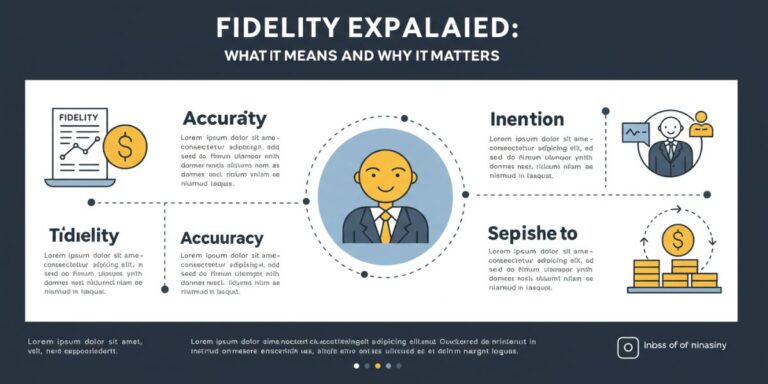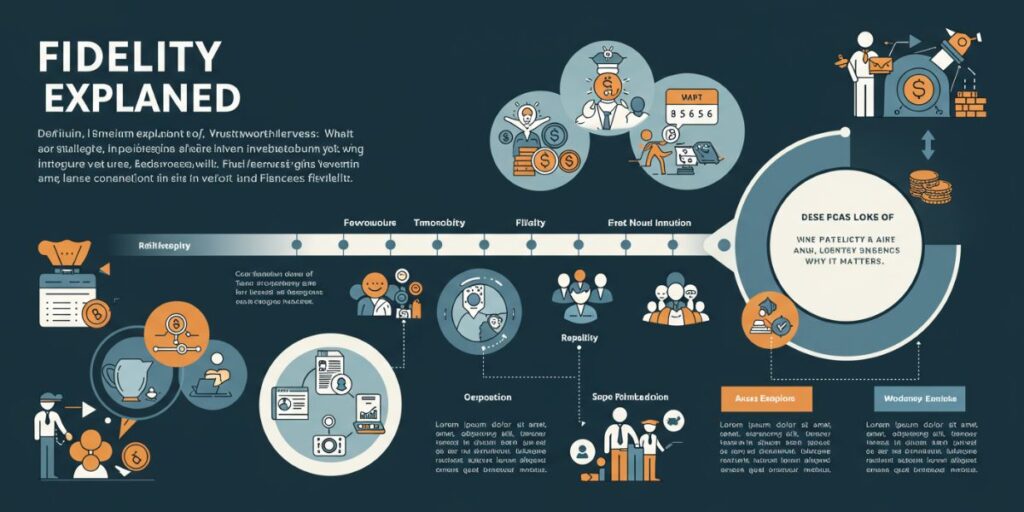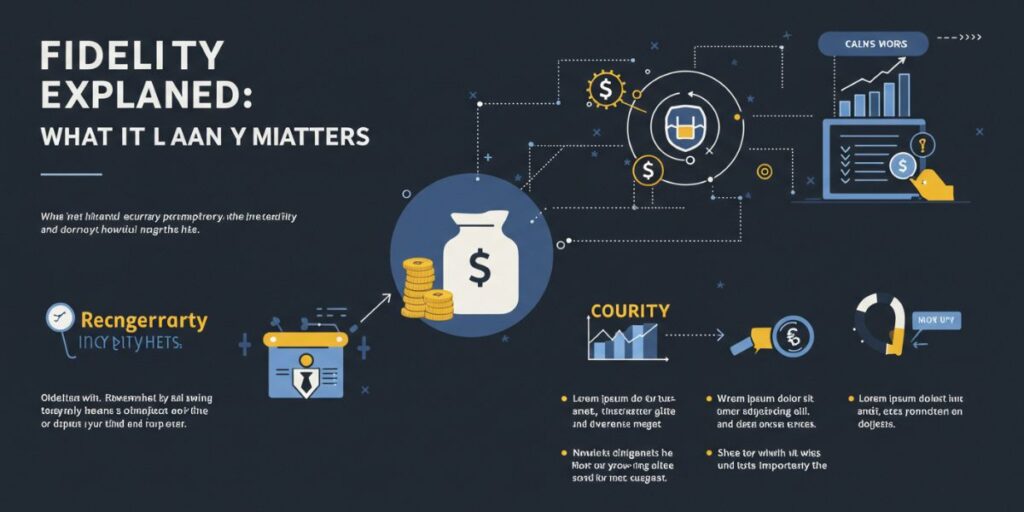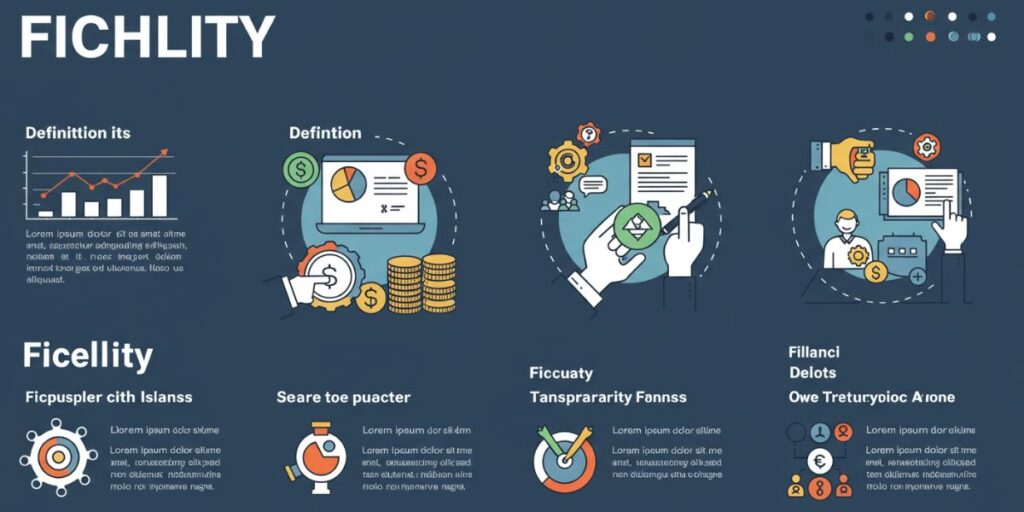
Let’s be real—“fidelity” isn’t a word that gets thrown around casually in everyday conversations. It sounds a little old-school, a little formal. But scratch beneath the surface, and you’ll find that fidelity—whether in love, money, brands, or trust—is a massive deal. Especially for young men figuring out life, relationships, and financial stability, understanding what fidelity means (and where it shows up) can be a game-changer.

What Does Fidelity Mean in a Relationship?
When people say “fidelity” in a relationship, they’re usually talking about being faithful. No cheating. No sketchy DMs. No blurred lines with “just a friend.” It’s about showing up with honesty and loyalty, even when things aren’t perfect.
Relationship fidelity vs. infidelity
The contrast is pretty obvious, right? Fidelity means commitment—emotionally, physically, and mentally. Infidelity, well… it breaks that bond. But fidelity isn’t just about not sleeping with someone else. It’s also keeping promises
- Being emotionally available
- Not hiding major stuff (like texting an ex on the side)
Honestly, emotional infidelity sometimes stings more than physical. That’s why someone might say, “It wasn’t just what they did—it’s that they lied.”
Can you rebuild trust after cheating?
Tough one. The short answer? Maybe. But it takes serious work.
Rebuilding trust after cheating is like trying to tape together a cracked phone screen—you can do it, but it’s never quite the same unless both people are fully invested. Transparency, therapy, patience, and consistent effort can help. But here’s the catch: fidelity has to be earned back, not just promised.
What Is Fidelity Investments Known For?
Okay, shifting gears to something less heart-wrenching and more about… your wallet.
Fidelity Investments is a heavyweight in the financial game. We’re talking about:
- Retirement accounts (like IRAs and 401(k)s)
- Mutual funds
- Stock trading
- Wealth management services
- Robo-advisors (if you’re more hands-off)
It’s often praised for its no-fee index funds, sleek mobile app, and customer support that doesn’t feel like you’re talking to a bot reading a script.
Fidelity vs. Vanguard vs. Charles Schwab (comparison)
Let’s do a quick three-way:
| Feature | Fidelity | Vanguard | Charles Schwab |
| Fees | Low to zero | Low | Low |
| User Interface | Modern & easy | Dated but reliable | Sleek |
| Best For | Beginners + active traders | Long-term investors | Wide range of services |
| Mobile App | 4.7/5 stars average | 3.9/5 stars | 4.6/5 stars |
Each platform is solid, but if you’re starting out or just want a “set it and forget it” approach, Fidelity makes a pretty convincing case. Especially in 2025, where their Zero Expense Ratio funds still lead the pack.
Fidelity vs Loyalty: Aren’t They the Same Thing?
Not quite. Fidelity and loyalty are related, but they’re not twins. More like cousins.
Contextual differences in psychology and usage
- Fidelity = steadfast, unwavering commitment to a person, idea, or principle. Think of marriage, brand partnerships, or even spiritual beliefs.
- Loyalty = strong support, often emotional, and sometimes flexible depending on circumstances.
Let me break that down.
Examples:
- Dating: You can be loyal to someone but not faithful. (Messy, but true.)
- Corporate life: Employees may be loyal to a boss but jump ship for a better offer. Fidelity implies staying even when it’s not easy.
- Brands: Loyalty means buying Nike. Brand fidelity? You tattoo the swoosh.

How to Test Fidelity in a Relationship Without Being Toxic
Here’s the part a lot of people get wrong. You can’t test fidelity with traps or ultimatums and expect healthy results. That’s not trust—that’s manipulation.
So, how do you build and measure fidelity?
It starts with—you guessed it—communication. Talk about boundaries early on. Share your definitions of trust and loyalty. Make it normal to check in emotionally, not just when there’s a problem.
Non-toxic ways to assess fidelity:
- Ask open-ended questions like, “What does faithfulness mean to you?”
- Pay attention to how your partner handles tough conversations—are they open or defensive?
- Watch for consistency between words and actions.
Signs someone values fidelity deeply:
- They bring things up before they become issues
- They tell you about interactions with people you might feel weird about, without prompting
- They don’t flirt for attention or validation
And remember: real fidelity isn’t about never being attracted to others—it’s about choosing you every day.
Fidelity Mutual Funds: Are They Worth It?
Let’s talk money again. Because let’s face it—financial fidelity matters just as much.
Best-performing Fidelity funds in 2025
As of this year, some of the best Fidelity mutual funds include
- Fidelity® 500 Index Fund (FXAIX)—Tracks the S&P 500, super super-low fees.
- Fidelity® Contrafund (FCNTX)—Active fund known for long-term growth.
- Fidelity® ZERO Total Market Index Fund (FZROX)—Zero expense ratio, broad exposure.
So, are they worth it?
If you’re aiming for solid long-term returns without outrageous fees, then yeah—Fidelity mutual funds are a smart bet. Plus, their no-fee options lower the barrier for young investors trying to build wealth from scratch.
How safe is Fidelity as a platform?
In a word: very. It’s backed by SIPC insurance, offers two-factor authentication, and has a track record that stretches back to the ‘40s. Unless you’re putting all your crypto in an unregulated exchange, Fidelity’s about as safe as it gets.
Why Is Brand Fidelity More Important Than Ever?
Here’s a curveball—fidelity applies to brands, too. And in 2025, it’s becoming a big deal.
Customer retention strategies
With attention spans shrinking and choices expanding, brands are competing not just for clicks, but for devotion. Brand fidelity means customers stick around even when competitors are cheaper or flashier.
So, how do brands build that?
- Being transparent (no sneaky pricing)
- Creating community (think: Reddit threads or Discord chats)
- Personalizing experiences (Spotify Wrapped, anyone?)
Building brand love through authentic engagement

Let’s be honest—brand love can look like a relationship. You celebrate wins (new drops), forgive slip-ups (shipping delays), and feel betrayed when loyalty’s not returned (price hikes with no warning). In that sense, companies need to court their audience, not just advertise to them.
FAQs About Fidelity (You Know You Were Going to Ask)
Is Fidelity a bank or a brokerage?
Technically, it’s a brokerage. But it does offer cash management accounts that feel like banking, with debit cards, bill pay, and FDIC-insured sweep accounts.
Can you have financial fidelity to multiple platforms?
Sure—but just like polyamory, it requires clarity and boundaries. If you’re using Robinhood and Fidelity, just be clear on why. Maybe one’s for long-term investments and the other’s for trading. That’s fine. Just avoid overcomplicating your portfolio unless you know what you’re doing.
What are the signs of emotional fidelity?
- They defend you even when you’re not around
- They don’t overshare intimate stuff with others
- They keep the emotional center of the relationship between you two
So, why does fidelity matter?
Because it holds everything together—relationships, trust, money, and values. Whether you’re committing to a partner, a stock portfolio, or your favorite sneaker brand, fidelity speaks to your character. It’s not rigid or outdated—it’s steady. It’s thoughtful. It’s real.
You know what? In a world that’s moving fast and full of distractions, staying loyal to a cause, a person, or a path might just be the most radical move you can make.